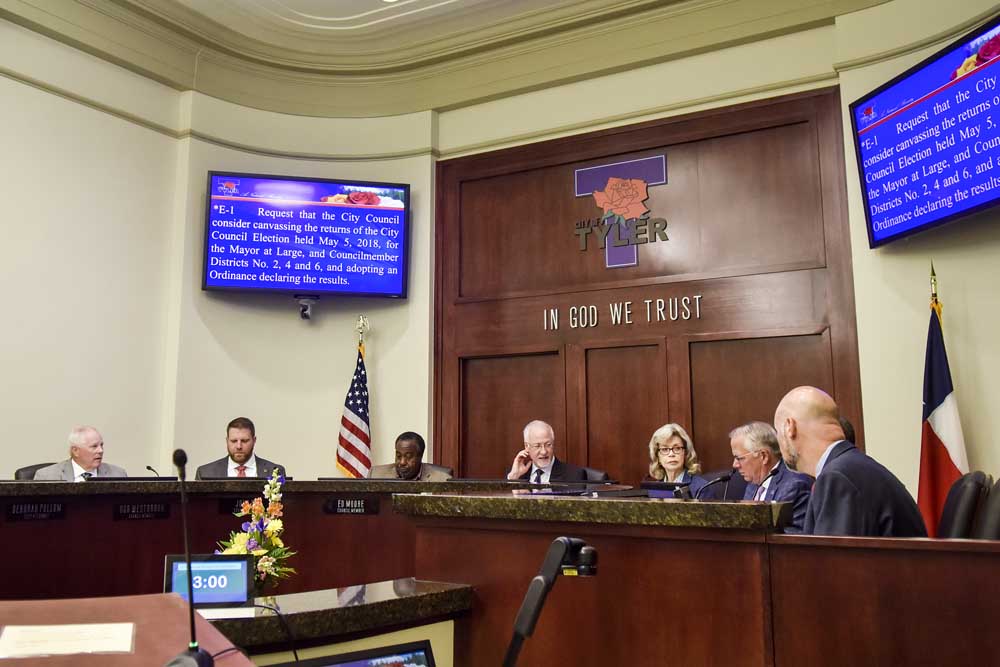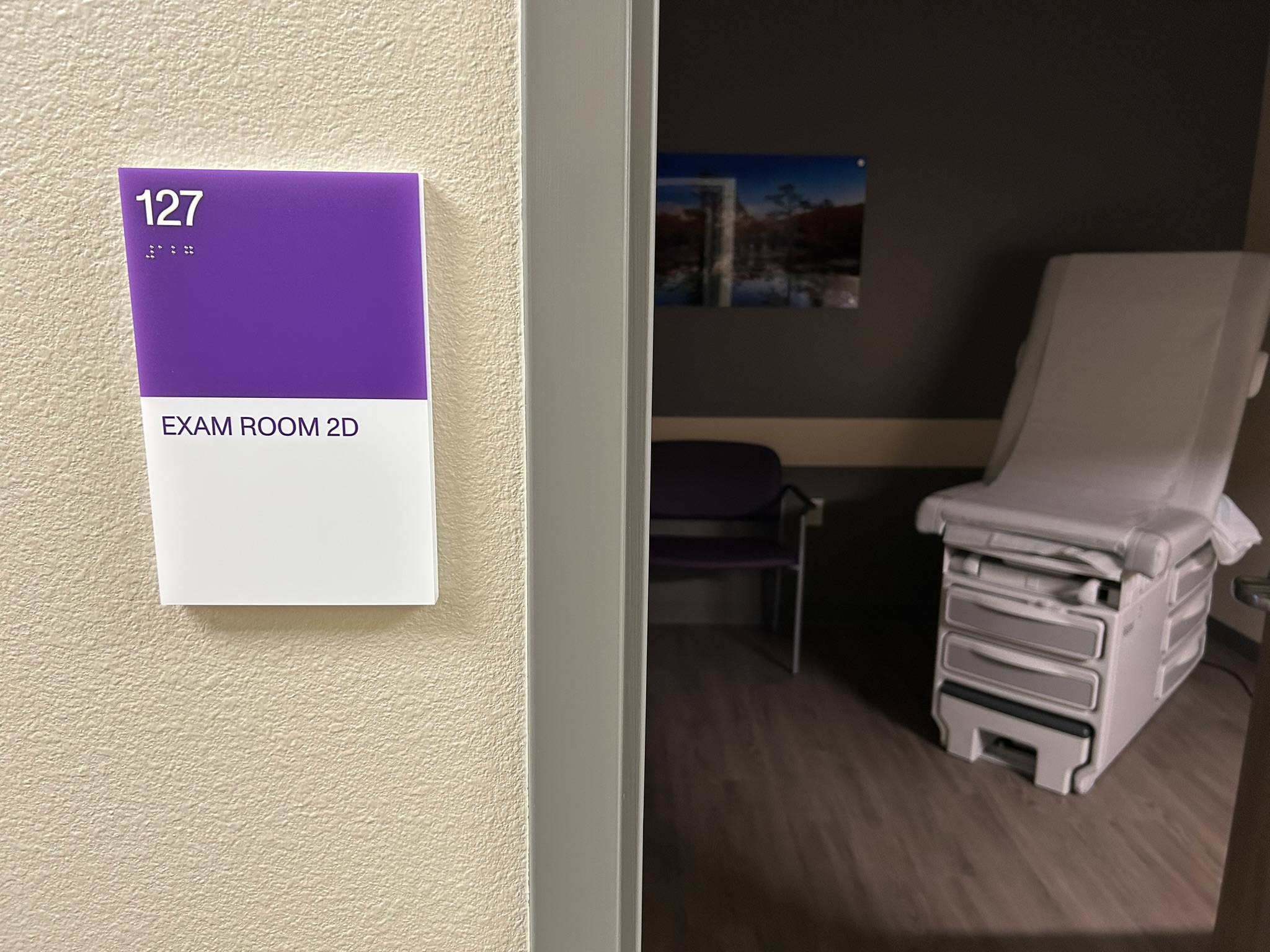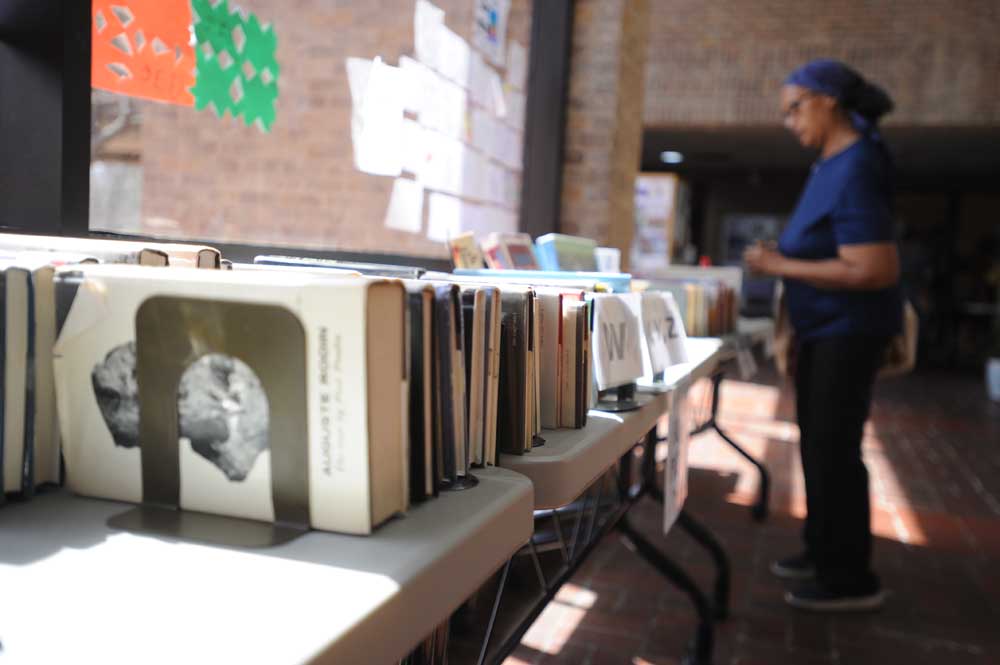Tyler passes ordinance banning e-scooters on most public streets, sidewalks
Published 4:45 pm Wednesday, July 24, 2019

- Tyler_City_Council_Meeting_Stock_2018
The city of Tyler has decided to ban motorized scooters from most of its city streets, citing concerns about safety, liability and clutter.
The Tyler City Council passed the ordinance on Wednesday at the recommendation of the Tyler Police Department, which conducted a study on the issue.
The issue came to the City Council because Blue Duck Scooters of San Antonio asked the city to allow a 30-day pilot program for scooters to be available in the downtown area.
In April, the City Council delayed a decision on that, after members said they would like to understand more what the risks were. The question of whether to approve a pilot program came back to the City Council Wednesday.
Billy Yates, the assistant chief of police, told the City Council that the police department did a survey and found that people were concerned about liability for the scooters; cluttering of right-of-ways, campuses, and parking lots; and any potential injuries.
Additionally, Yates said he looked at scooter injury data from the U.S. Centers for Disease Control based on just under 1 million scooter trips around Austin. There were 10 injuries per 100,000 scooter trips, he said. Fifteen percent experienced brain injuries, and half experienced severe injuries.
“City staff recommend not approving the e-scooters in the city of Tyler,” he said in conclusion.
The City Council chamber went silent for a few seconds.
“At all?” asked Councilman Don Warren.
Yates explained that staff had written a draft ordinance to prohibit “shared active transportation systems,” such as scooters, and done it in such as way that scooters won’t be prohibited on college campuses. Those colleges could enter into their own agreements with companies like Blue Duck, he said.
Elizabeth Houston, a vice president for Blue Duck, attended the meeting. She said after Yates’ presentation that the company is happy to work with the city in any way to make scooters happen. However, she said she’s had trouble working with city officials to address concerns.
“There are some concerns that have been brought up that I’d love to address,” Houston said. “I did meet with the city manager and the chief back in March. … Since then, I’ve had a hard time working with the city, unfortunately.
“It seems like they’ve kind of wanted to do this in a silo and there’s a lot of things that have come up, and I wish we could discuss,” she said. “I did not know this was coming to a vote in April, or I would have been here.”
Houston said the company would be glad to reduce the number of scooters brought in as part of the pilot program, and no matter the number, she said the company would phase in their arrival.
“The clutter is a horrendous problem,” Houston said of the industry. “We recognize that. The operators in this space are very irresponsible. … I agree with you, and we would help solve that with employees that we hire here locally.”
The company operates in major cities such as San Antonio, Corpus Christi, and Laredo.
She said the company intentionally did not go into Austin or Dallas because of the saturation of many different scooter providers.
“I’ve seen how this can change lives, help people get to places of work, so if that means us taking a step back, even if it might not be a good business decision, we’re willing to do so,” Houston said.
In passing the ordinance, the City Council also voted to add language encouraging the company to work with local colleges, such as the University of Texas at Tyler, Tyler Junior College and Texas College.
“I was hoping the pilot program actually (would be) at the schools, being at UT Tyler, TJC for the 30-day program,” Warren said. “It sounds to me like you’re wanting to do just the flip side.”
Warren was referencing Houston’s preference to get approval through the city government first before launching with colleges, as opposed to his desire to see it launched at the schools before expanding through the city.
Houston said it’s been hard to get traction with the colleges. She said she hasn’t heard a lot of responses back after calling and emailing, and it would be easier to set up a pilot program with the city’s support.
“I’m inclined to make sure we open it up to all three colleges, TJC, Texas College and University of Texas,” Mayor Martin Heines said. “And I would like for our staff to encourage that with those entities. I think that would be a good starting point to be of some interest.”
Heines also commented on the company’s model of offering scooters in urban downtowns. Houston had said that model came about after her family had staff members at other companies riding scooters to work as a way to avoid congestion and paying pricey parking fees.
“We have a free parking garage that has 300 spaces open,” Heines said. “So we’re not really experiencing the same urbanization issues that San Antonio would be experiencing.”
In an interview after the meeting, Yates said the city’s sidewalks are not wide enough for both scooters and pedestrians, and that the historic brick streets in the downtown area create additional hazards.
“The difference between bicycles and scooters are the amount of pedestrians we have here in Tyler,” Yates said. “And our sidewalks will not accommodate both a scooter and a citizen. It possibly could in certain areas, but the area we concentrated on would not allow that.”
He said sidewalks would need to be wider to accommodate scooters, and it’s unlikely that the historic brick streets ever would be paved over. However, he said some of the projects going on downtown could make the area more attractive to scooters.
“We encourage every company to come to the city of Tyler, but right now we just don’t feel like right now is the right time for products like that,” Yates said.
TWITTER and INSTAGRAM: @_erinmansfield






